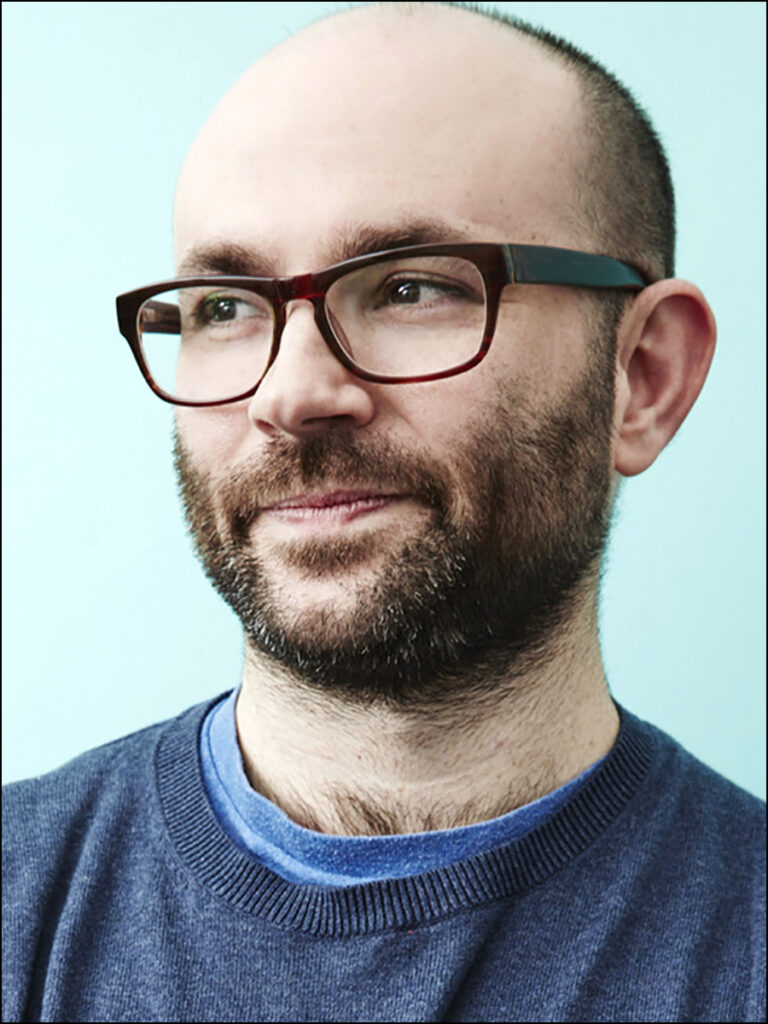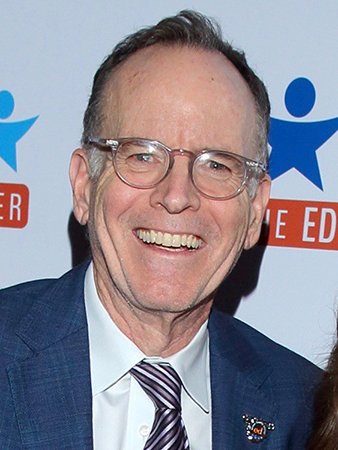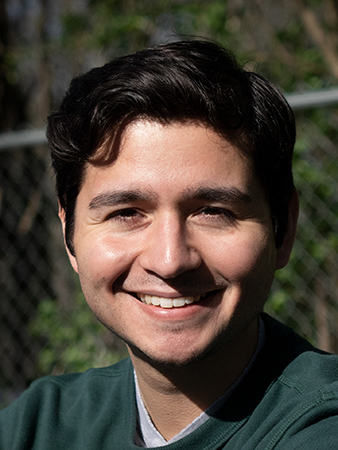Based on a True Story documentary film conference kicks off Feb. 26

Based on a True Story (BOATS), a three-day lineup of documentary film master classes and workshops organized by the Murray Center for Documentary Journalism, returns Feb. 26-28. Based at the Missouri School of Journalism, the Murray Center’s programming will offer opportunities for students and the public alike to be immersed in documentary film conversations and experiences.
“This is our best year of BOATS yet,” said Murray Center Filmmaker-in-Chief Robert Greene. “Like every year, attendees and students can expect cutting edge and uniquely immersive conversations that will push forward our understanding of the art of documentary filmmaking and will get real about the state of the industry.”
BOATS will kick off with a bang on Wednesday, when Academy Award-nominated filmmaker Joshua Oppenheimer delivers a master class covering his acclaimed career and the making of his recent musical, “The End.”
Later that night, another major name in the documentary industry will appear: Jonathan Murray, an acknowledged originator of reality television behind projects like MTV’s “The Real World” and the namesake of the Murray Center. At Columbia’s Ragtag Cinema, Murray will discuss the making of the influential reality series, “The Simple Life,” with Greene.
Over the course of three days, a parade of professional filmmakers and industry veterans will follow alongside screenings of thought-provoking films. But these aren’t the conference’s only claims to fame.
The timing of BOATS, with several of its sessions filling gaps in the opening mornings of the True/False Film Fest — a renowned documentary film festival also running in Columbia from Feb. 27 to March 1 — reflects the Murray Center’s deepening collaboration with the festival and the wider documentary industry as it embarks on its second decade. For attendees, that means rare chances to peek behind the curtain of films they can see at True/False Film Fest.
“BOATS is a really unique opportunity for people to step behind the scenes of making a documentary — from developing an idea to making it real and diving into the themes it explores,” said Supervising Producer Sebastián Martínez Valdivia.
All BOATS events are free and open to the public with no tickets required. The full schedule is available on the BOATS website and is also shown below.
BASED ON A TRUE STORY 2025
WEDNESDAY FEBRUARY 26
JOSHUA OPPENHEIMER: THE END AND THE BEGINNINGS
1:00 p.m. – 3:00 p.m. Smith Forum
With Joshua Oppenheimer.
Moderated by Robert Greene.
For a special addition to BOATS this year, everyone is invited to a master class with Joshua Oppenheimer, making his return to Columbia for the first time in over a decade. The acclaimed director will discuss his new musical, the controversial Telluride-premiering The End, the making of his masterpieces The Act Of Killing and The Look Of Silence and the early work that lead to the making of all of these films. This talk will be a part of the Murray Center Documentary Development class, hosted by Robert Greene, but all are welcome to attend!
OPENING NIGHT: JONATHAN MURRAY’S SIMPLE LIFE
7:00 p.m. – 9:30 p.m. Ragtag Cinema
With Jonathan Murray.
Moderated by Robert Greene.
On December 2, 2003, the latest reality television gambit from the already-iconic innovators of the genre, Bunim/Murray Productions, premiered on Fox. The Simple Life followed heiress Paris Hilton and pop royalty Nicole Ritchie as they moved to Altus, Arkansas for a month to live with the Leding family, trading in their socialite standing for rural life. The show was a comedic sensation. This special screening with producer and Murray Center founder Jonathan Murray will include the first two episodes of the show, plus never-before-seen development materials, including screen tests with Hilton and Ritchie. The discussion will focus on the making of the show and how Hilton and Ritchie’s performances changed reality television – and documentary film, by extension – forever. How did Bunim/Murray produce the show? How does Murray feel about the show and this era of reality television all these years later? The performative mode of The Simple Life created a template later magnified by Murray’s Keeping Up with the Kardashians. Was the show a pandora’s box or the beginning of recognizing what reality television really is: a series of canny, self-aware performances?
THURSDAY FEBRUARY 27
SEEDS: INTUITION AND INTENTION
9:00 a.m. – 10:30 a.m. Smith Forum
With Sabrina Schmidt Gordon, Robert Aiki, Aubrey Lowe, Brittany Shyne and Danielle Varga.
Moderated by Sebastián Martínez Valdivia.
Good observational documentaries are hard to make. Really hard. They demand the filmmaker be present, and patient; to make decisions in the moment without compromising their experience of that moment; and, with their production team, to transmit this experience to an audience without the help of narration or talking heads. In Seeds, which won U.S. Grand Jury Prize: Documentary at this year’s Sundance Film Festival, director Brittany Shyne deftly takes on this challenge to bring viewers into a community of Black farmers in rural Georgia, and to bring them in close. Shyne makes full use of the intimacy she was able to develop with the participants in the film, which she built over nine years working on her debut feature. When you watch Seeds, you’re sitting next to people in cars and at kitchen tables, taking in the look in their eyes, the wrinkles on their hands; the textures of their lives. In this session, Shyne, alongside producers Sabrina Schmidt Gordon and Danielle Varga, and composer Robert Aiki Aubrey Lowe, will break down the components that go into creating the feel of the film: from its use of black and white, to the considered and thoughtful score, to its creative problem-solving in production and editing.
A FIELD GUIDE TO PRODUCING THROUGH A COLLAPSE
10:45 a.m. – 12:30 p.m. Smith Forum
With Mia Bruno, Lauren Domino, Bennett Elliott, Jesse Miller, Alice Quinlan and Andrew Sherburne.
Moderated by Robert Greene.
The documentary film economy has been in a free fall since the pandemic. Changing viewing patterns, a breakdown of traditional distribution models, fickle streaming companies guided by corporate interests and the residual impact of the 2023 Hollywood labor disputes have all made the life of the documentary producer more precarious than any time in recent memory. To discuss the realities of this current predicament, and to find legitimate pathways through the muck, we’ve gathered a star-studded panel of producers with a range of experiences across the entire documentary filmmaking process. How does one do development with so few funders willing to take risks? How has production shifted since the heyday of budget expansion in the so-called documentary golden age? How does one release a film like Stephen Maing and Brett Story’s Union when the industry has blackballed it? Ye who enter must have hope and not despair! This will be a closed door, no-recording session where these producer superstars can get real and help us all navigate the tricky minefields of the documentary industry.
[NOT] TAKING SIDES ON GENERATIVE AI
1:30 p.m. – 3:00 p.m. Smith Forum
With Damon Davis, Marley McDonald, and Debra McClutchy.
Moderated by Alissa Wilkinson.
The main thing Generative AI seems to have created in the film world so far is controversy. While the technology’s backers say its limitless applications promise a revolution in how films are made, skeptics have pointed out the major ethical, labor, and environmental concerns that come with such sweeping changes. Is animating a historical photograph a lie, or a chance to communicate a deeper truth? How much of what’s falling under the umbrella term of “AI” is even new? Is this technology a new tool for capital to marginalize labor, or for disenfranchised creatives to undertake more ambitious projects? These questions and more have been subsumed by a firestorm of polarization that has situated Generative AI at the heart of an increasingly volatile political moment. Our panel of filmmakers will attempt to cut through the cross-talk from a variety of perspectives to explore the nuances lost in online debate, and to wrestle with the concerns and the opportunities that come with AI’s inescapable arrival.
MOORE FOR SALE
3:15 p.m. – 4:00 p.m.
With Keith Wilson.
In 2017, filmmaker and producer Keith Wilson (Joonam, I Didn’t See You There, Interior. Leather Bar.) began a feature documentary about Frank Moore, the controversial Berkeley-based performance artist, public access TV host, shaman, and commune leader. With complete access to Moore’s extensive archive, Keith began shooting interviews, crafting grant proposals, and editing numerous work samples for what he anticipated would be his feature directorial debut: “Deep Inside the Shaman’s Den.” Wilson was determined, his peers were enthusiastic, and a much-talked about Points North Pitch was delivered. But nearly eight years later, the film has not been made. What happened? In one of his final performances of Moore For Sale, Wilson will weave together the biographical details of Frank Moore’s life, art, disability, and communal family with Wilson’s own professional and personal journey as a queer documentary filmmaker as images and videos play on the screen behind Wilson in a humorous, self-deprecating fashion.
FRIDAY FEBRUARY 28
PREDATORS
9:00 a.m. – 10:30 a.m.
With David Osit.
Moderated by Eric Hynes.
For his latest film PREDATORS, acclaimed director David Osit pulls us into the troubling psychological space of To Catch A Predator (TCAP), the monumentally influential “child predator” hunting show that shocked television viewers and transformed the nation. Osit’s deeply personal and contemplative Sundance hit and True/False standout is meant to dissect the show’s complex effect on journalism, its influence on vigilantism and its manipulation of our collective understanding of victim/abuse narratives. For this unique interactive session, Osit and moderator Eric Hynes will use the Smith Forum to extend the film’s lines of inquiry into the show’s psychology and impact. What was the role of the set and host/instigator Chris Hansen’s performance in TCAP? How did hidden cameras change things for the decoys and “predators?” What’s the difference between the raw and edited footage of the men ensnared in the show’s flytrap? Content warning: the show, which started as a segment on NBC’s Dateline, was about men who were accused of and often caught talking to people they believed to be minors in sexually explicit ways. This session will fully immerse attendees in the world of this strange and upsetting cultural phenomenon.
Updated: February 20, 2025


